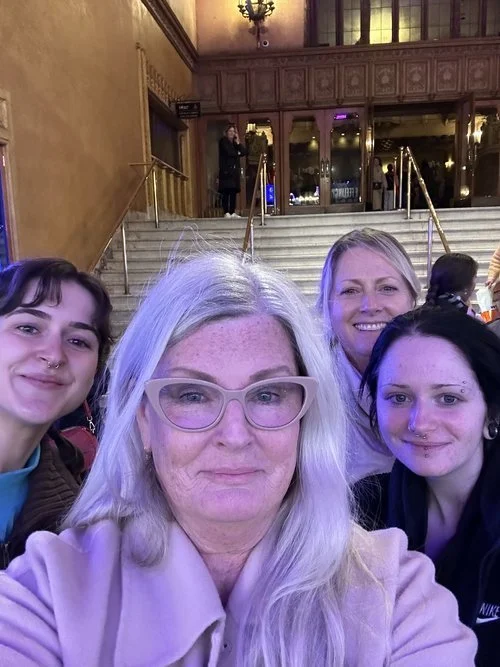
What makes Door2 different?
At Door2, we do things differently—we offer a space that respects autonomy and individual needs, with a focus on building trust—not compliance. Our approach is about connection, not correction.
Recovery from eating disorders happens when there is time and space for healing, when people feel safe enough to let go of the rules they’ve depended on to survive.
Our team – both Carers and Insiders – have not only walked the path of eating disorders themselves, they are also skilled educators and therapists. Together they bring a rare and powerful blend of professional expertise, personal experience, and the wisdom gained from listening deeply to the stories of others. This library of lived knowledge exists only because of the trust placed in us by those who have so generously shared their journeysWhile our program is grounded in research and expertise, it is the inside experience that shapes what we do and how we do it. Our Insider Mentors are everything—their voices, perspectives, and wisdom ensure that our approach is deeply human, relevant, and real. They are the literal gold in Door2.
We understand how the mainstream system gets it wrong—especially for neurodivergent people. At the core of eating disorder behaviours are rigid, black-and-white thinking patterns. Yet many conventional treatments, particularly Family Based Therapy (FBT), demand strict compliance with equally rigid structures. This approach often clashes with the very nature of the person’s experience, reinforcing distress instead of relieving it.
Eating disorder behaviours are not acts of rebellion—they are survival strategies in a world that feels increasingly overwhelming and unliveable. When treatment makes life more unliveable, it drives people deeper into the eating disorder, not away from it. Punishment, coercion, and control are not motivators—they are sources of trauma. They increase a person’s reliance on the rules of the eating disorder. Rules that numb pain and provide a sense of safety when everything else feels unsafe and uncertain.
At Door2, recovery isn’t about fixing or controlling. It’s about creating safety, connection, and the freedom to come back to yourself. It’s about trust, agency, and real, human connection. And how we help you achieve this is through becoming masterful in the art of communication.
This is what Door 2 teaches carers and insiders: the skill of understanding behaviour as a form of communication, and the pathway this opens to building new ways of connecting. You will learn the art of translating words — or the absence of words — and how to interpret these into meaningful communication that demonstrates you truly understand what the other person is trying to express, and facilitate the back-and-forth collaboration needed to solve problems and ensure everyone feels heard in the process.
So perhaps Door2 is best described as a translation service—helping detangle the trauma, confusion, and miscommunication that happens when treatment misses the person and what they are trying to express and focuses only on the symptoms. This is where harm is done—and this is where change is needed.
Get to know our team of qualified and experienced Educators, Therapists and Mentors, each with their own lived experience and unique story.

We know that recovery is deeply personal
For Carers, it means navigating uncertainty while holding space for both fear and hope to exist together.
The Door2 program strengthens Carers through education and ongoing support, helping you develop a deep understanding of your Insider’s lived experience. This knowledge builds your capacity to offer consistent, unconditional support—creating a safe and trusting environment where the Insider feels secure enough to engage in the challenging process of choosing change and moving toward sustained recovery.
For Insiders it involves letting go of the safety and predictability that eating disorder behaviours provide.
We will never mistake you for the voice of your eating disorder. Being told “that’s your eating disorder speaking” is one of the most invalidating and painful things a person can hear. It shuts down communication, breaks trust, and escalates the distress the person is trying to survive.
We recognise how disabling it can be to feel trapped inside, without a voice, and understand that being treated as if you are your eating disorder only deepens that isolation.
Find out more about Door2 Membership and Individual services.
Results matter


